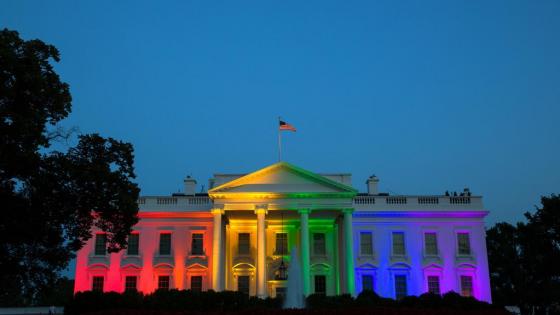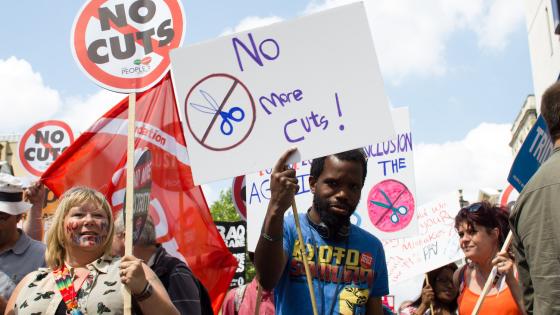During his November 2016 visit to Europe, President Obama said: "When we see people, global elites, wealthy corporations seemingly living by a different set of rules, avoiding taxes, manipulating loopholes ... this feeds a profound sense of injustice" (Obama 2016).
So, why did so many of the victims of such injustice vote for one of the members of this global elite who lives by different rules? Could it be that what aggravated the majority of voters for President-elect Trump is not that the top 1% in the US have been able to reap most of the economic gains of the past decades but, paradoxically, a rise in equality? More equality in three dimensions may be feeding a greater sense of unfairness, indignation, and impotence than the increase in income and wealth inequality: the rise of an African-American elite, the empowerment of women, and the legitimation of the gay community’s right to be treated as equals by the law. This is my hypothesis.1
First, some facts:
- In the years from 2005-2013, “the income bracket with the largest increase for black households occurred in the number of households earning over $200,000, with an increase of 138%, compared to an increase of 74% for the total population” (Nielsen 2015). Of course, inequality among blacks is extreme. A Pew Research Study shows that 35% of black households have negative or no net worth. At the same time, however, Nielsen reports that the number of estimated black millionaires has risen from 25 in the 1960s to 35,000 today. The African-American elite not only has many more millionaires, it also produced a two-term president.
- Women now make up almost half of US workers (49.9% in October). They run some of the world's best companies, such as PepsiCo, Archer Daniels Midland and W.L. Gore. They earn almost 60% of university degrees in the US. Women make up the majority of professional workers (Economist, 2009).
- In Obergefell v. Hodges, the US Supreme Court ruled on 26 June 2015 that: "[T]he right to marry is a fundamental right inherent in the liberty of the person, and under the Due Process and Equal Protection Clauses of the Fourteenth Amendment couples of the same-sex may not be deprived of that right and that liberty." As a result, same-sex marriage became legal in all states.
These three phenomena reflect a decline in what social scientists call horizontal inequality: systematic disadvantages across gender, racial, ethnic, religious, and sexual orientation lines. Today blacks can be increasingly elite, women increasingly powerful, and the gay community increasingly socially acceptable, and accepted.
There are signs that rising horizontal equality is feeding unhappiness and despair in those left behind by economic transformation, and in those who see their identity and core values unbearably threatened by uncontrollable shifts in mores and norms.2 Here are two startling examples:
- The discovery that the rise in mortality of high-school-and-below educated white middle-aged men and women between 1999 and 2013 was driven by drug and alcohol poisoning, suicide, chronic liver diseases, and cirrhosis (Case and Deaton 2015);
- The finding that this "stands in sharp contrast to gradual improvements in health and well-being of blacks and Hispanics over the past decades, and high levels of optimism about the future among these same groups." (Graham and Pinto 2016). Graham and Pinto's research shows that poor blacks are three times more likely to be at a high level of optimism than poor whites.
There is also evidence that people who felt threatened by rising horizontal equality were more likely to vote Republican and, especially, for Trump:
- Supporters of Trump were found more likely to describe African Americans as "criminal", "unintelligent", "lazy", and "violent" than voters who backed some Republican rivals in the primaries, or those who supported Democratic candidate Hillary Clinton (Flitter and Kahn 2016).
- The more hostile voters were toward women, the more likely they were to support Trump (Wayne et al. 2016)
- Two-thirds of Republicans, but also one-third of Democrats, oppose same-sex marriage (Pew Research Center 2015).
- Trump is a consistent opponent of marriage equality (Human Rights Campaign 2016).
If this is true, those of us who think that rising horizontal equality is desirable must find ways to make sure that further progress, if not embraced, is at least tolerated by those who feel that this kind of progress must be stopped or – worse – reversed. If I had to choose one policy, it would be to make college affordable to all. In poll after poll, and study after study, the more educated people are, the more they embrace horizontal equality in the US.
References
Case, A and A Deaton (2015), ‘Rising morbidity and mortality in midlife among white non-hispanic Americans in the 21st century’. Proceedings of the National Academy of Sciences 112 (49) (November): pp. 15078–15083. .
Cowen, T (2016), ‘What the hell is going on?’ Marginal Revolution, 25 May. .
Economist (2009) “Female power”, 30 December.
Flitter, E, and C Kahn (2016), “Exclusive: Trump supporters more likely to view blacks negatively - Reuters/Ipsos poll”, Reuters. .
Graham, C and S Pinto (2016), “Unhappiness in America: Desperation in white towns, resilience and diversity in the cities”, The Brookings Institution. .
Human Rights Campaign (2016), "Donald Trump: Opposes nationwide marriage equality".
Nielsen (2015), ‘Increasingly Affluent, Educated and Diverse: African-American Consumers’.
Obama, B (2016), “Remarks at Stavros Niarchos Foundation Cultural Center in Athens, Greece”, The White House Office of the Press Secretary.
Pew Research Center (2015), ‘Support for Same-Sex Marriage at Record High, but Key Segments Remain Opposed’.
Supreme Court of the United States (2015). ‘No. 14–556. Obergefell v Hodges’. https://www.supremecourt.gov/opinions/14pdf/14-556_3204.pdf.
Wayne, C, N Valentino, and M Oceno (2016), ‘How sexism drives support for Donald Trump’. Washington Post.
Endnotes
[1] Tyler Cowen, the author of the blog Marginal Revolution, has expressed a similar conjecture in reference to attitudes towards women (Cowen 2016).
[2] One-third of Americans feel that there is a lot of conflict between their religious beliefs and homosexuality. In this group, opposition to same-sex marriage outweighs support by more than two to one. (Pew Research Center 2015)



